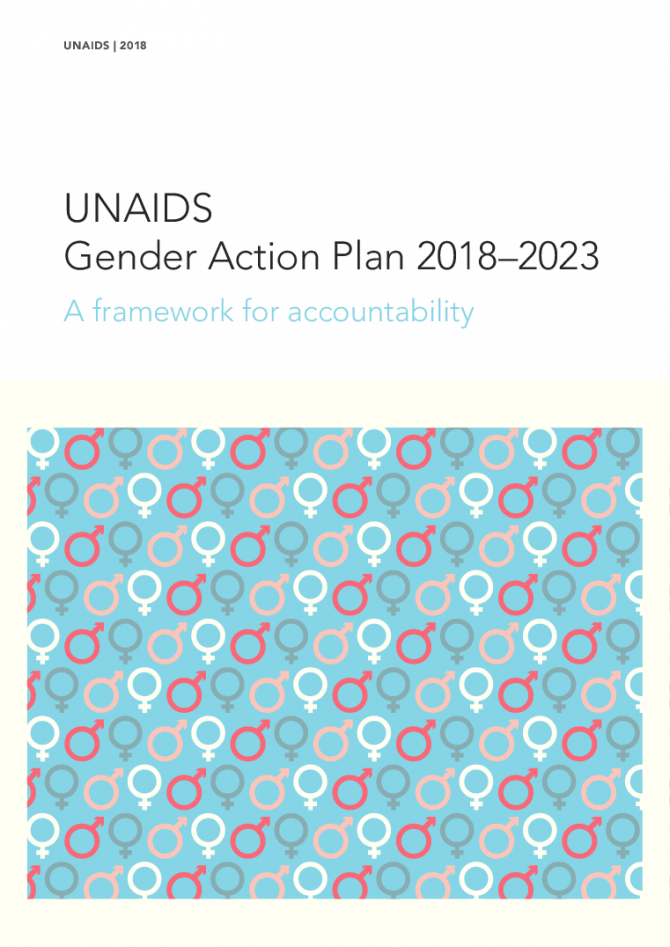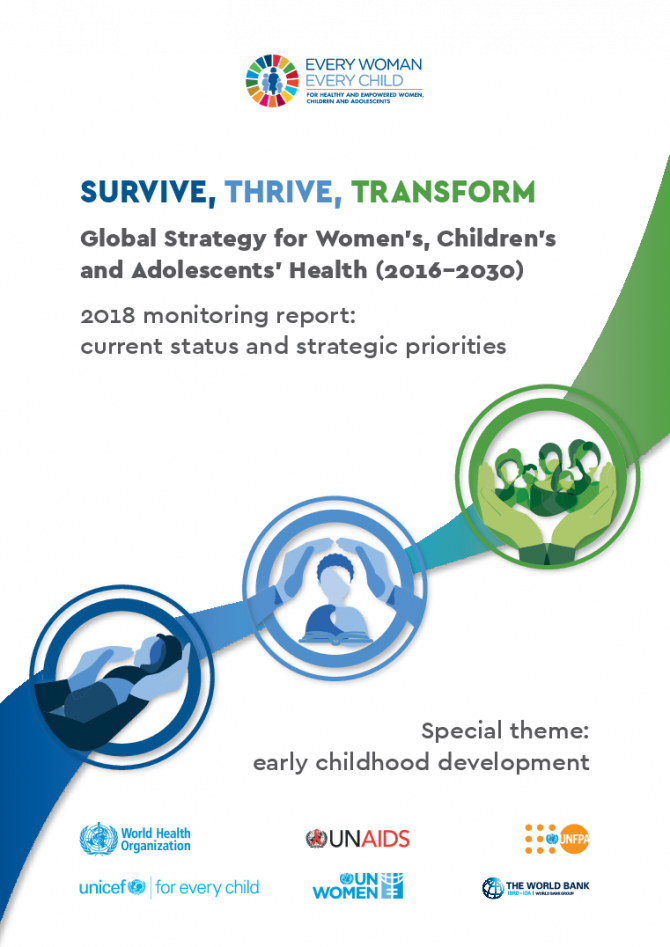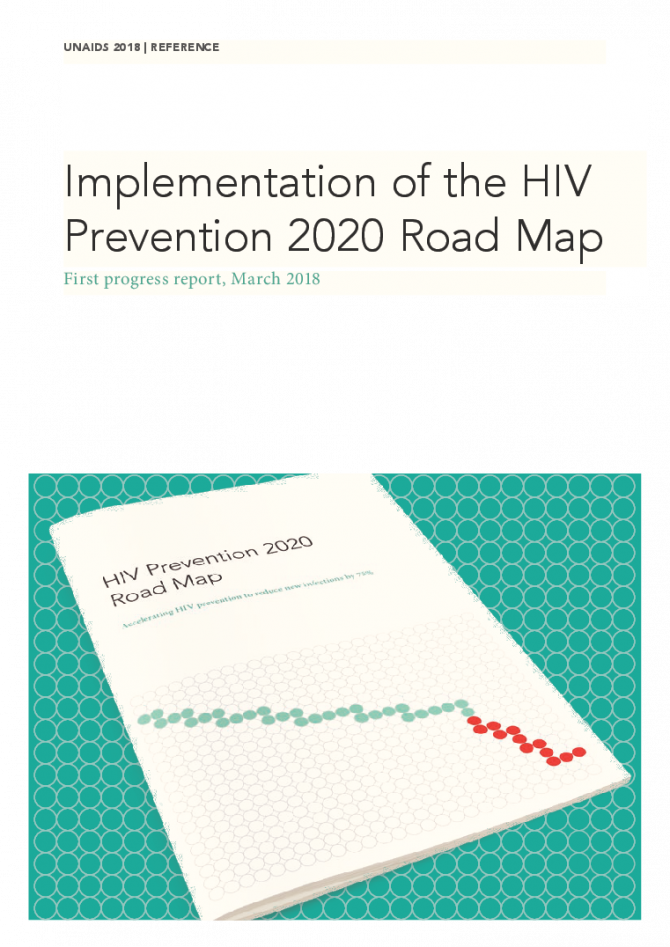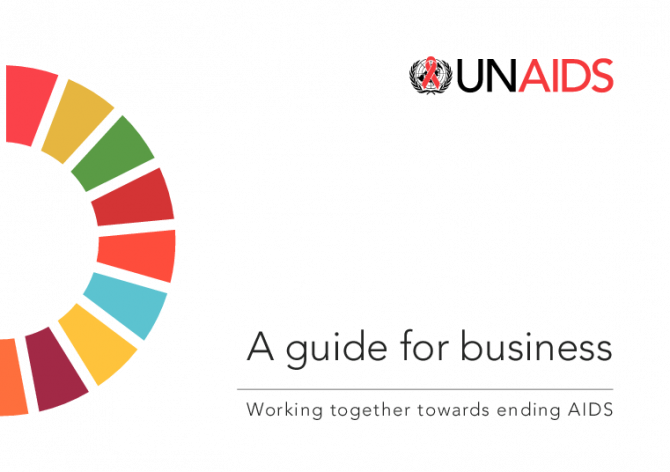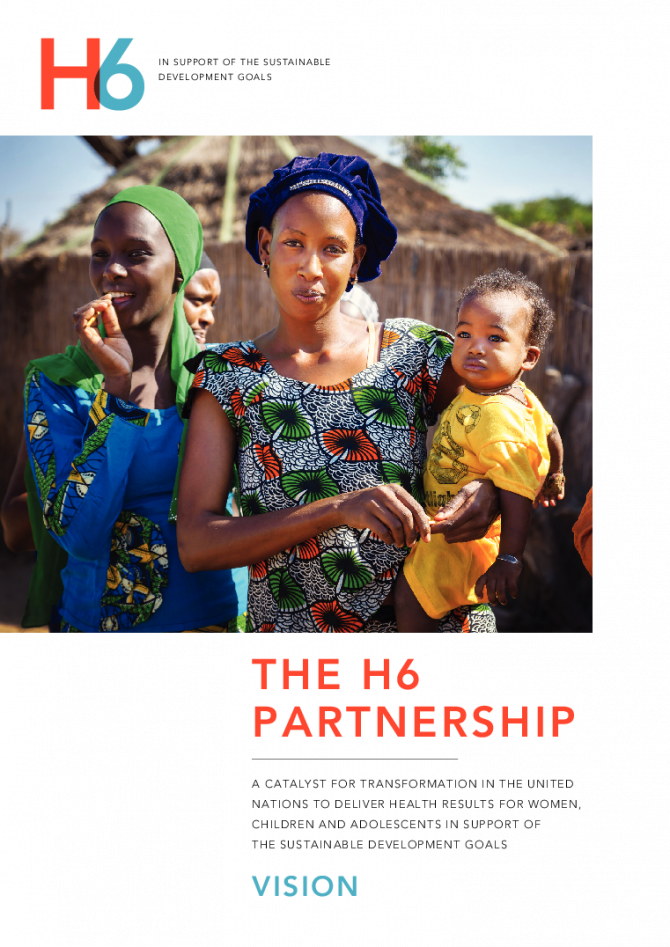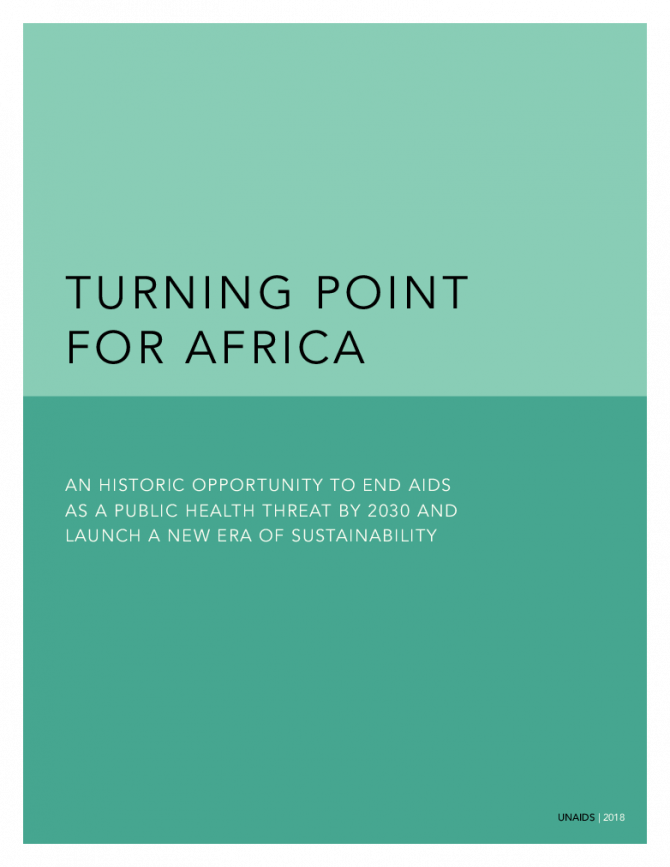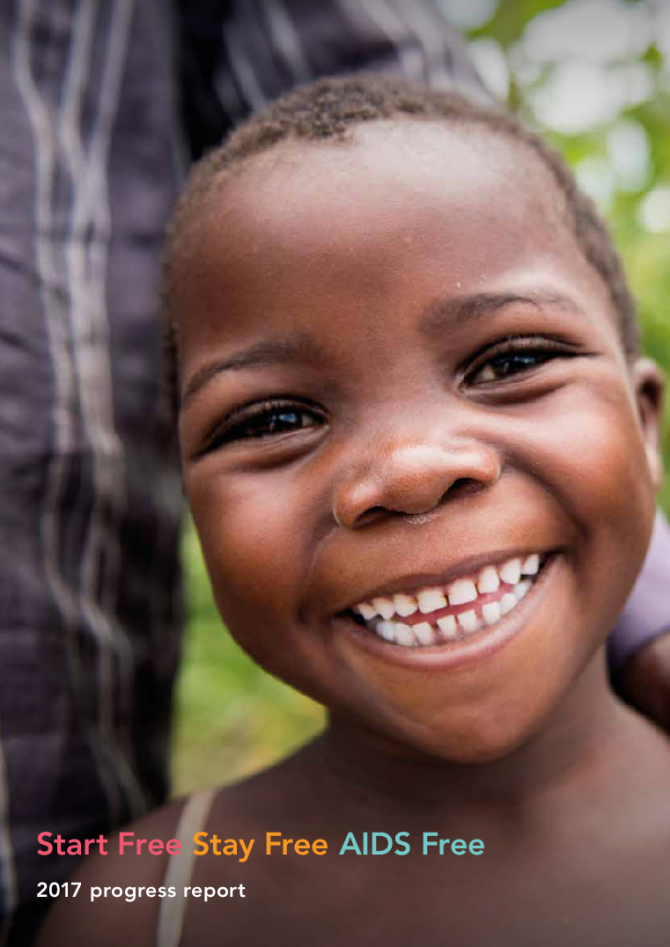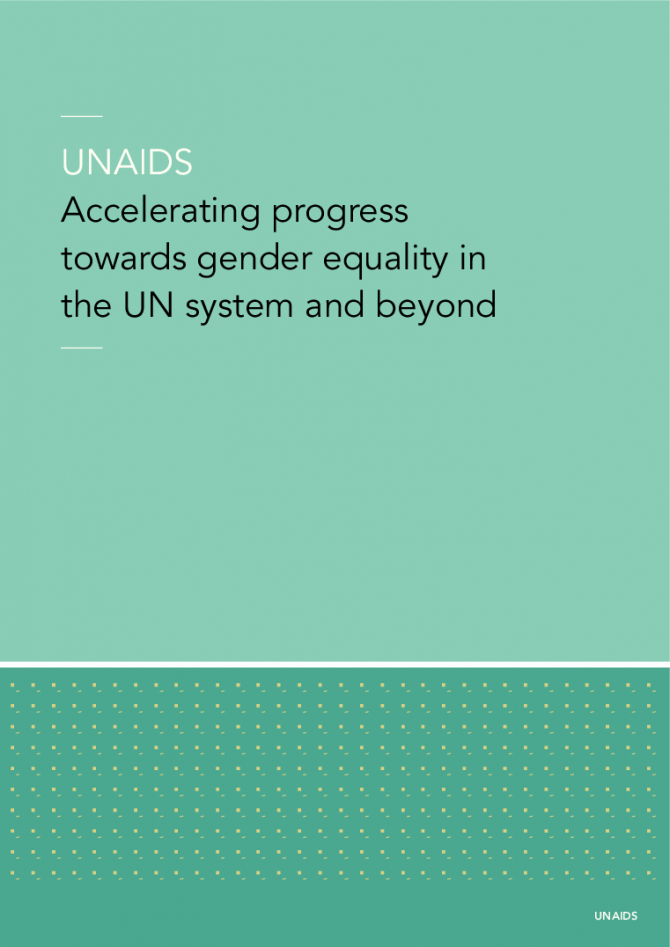Documents
UNAIDS Gender Action Plan 2018–2023 — A framework for accountability
05 June 2018
Gender equality in the workplace is a human right and critical to the performance and effectiveness of UNAIDS. Organizations with more equal representation of women at the senior management level considerably outperform their counterparts with a lower representation of women in senior positions. Gender-balanced teams have greater potential for creativity and innovation and contribute to better outcomes in decisionmaking. The centrality of advancing gender equality, including through the achievement of gender parity, is increasingly being recognized, as signalled by the historic System-wide Strategy on Gender Parity, launched by the United Nations Secretary-General in 2017.
Documents
Survive, Thrive, Transform — Global Strategy for Women’s, Children’s and Adolescents’ Health (2016–2030) — 2018 monitoring report: current status and strategic priorities
28 May 2018
The report sets out the status of women’s, children’s and adolescents’ health, and on health systems and social and environmental determinants. Regional dashboards on 16 key indicators highlight where progress is being made or lagging. There is progress overall, but not at the level required to achieve the 2030 goals. There are some areas where progress has stalled or is reversing, namely neonatal mortality, gender inequalities and health in humanitarian settings. The report also highlights new evidence with a special focus on early childhood development as a foundation for health and well-being across the life course. There are new estimates on the causes of death in children older than 5 years; most are preventable. Each section of the report highlights strategic priorities, interventions and approaches that could help countries address challenges and accelerate progress.
Documents
Implementation of the HIV Prevention 2020 Road Map - First progress report, March 2018
22 May 2018
This first progress report shows that members of the Global HIV Prevention Coalition have mobilized around strengthening HIV primary prevention. There are clear signs of renewed political commitment and strengthened institutional arrangements for planning and managing prevention programmes. Most member countries have moved fast to develop HIV prevention action plans, and there are many examples of excellent and innovative new initiatives. Furthermore, interest in the HIV prevention agenda and the Coalition is growing. A global accountability process has been set up, with score cards that track progress across a range of high-priority prevention programme areas.
Documents
Operational guidelines for selecting indicators for the HIV response
12 May 2015
These operational guidelines provide detailed information about how to use the indicator assessment tool. This tool assesses the extent to which indicators intended for use in the HIV response meet a set of internationally agreed standards. These operational guidelines, the indicator assessment tool and the standards have all been produced by the UNAIDS Monitoring and Evaluation Reference Group (MERG).
Documents
A guide for business — Working together towards ending AIDS
25 January 2018
Ending AIDS is everybody’s business and will need collaboration between both the public sector and the private sector. Ending AIDS by 2030 needs effective action on: HIV testing, prevention, treatment and care, human rights Solutions-oriented approaches by the business community are required in each of these areas. This document is available in Arabic | Chinese | English | French | Russian | Spanish and Japanese
Documents
Turning point for Africa — An historic opportunity to end AIDS as a public health threat by 2030 and launch a new era of sustainability
20 April 2018
A decade of progress has inspired the once unthinkable—that the AIDS epidemic can be ended as a public health threat. The global community has embraced the bold idea to end the AIDS epidemic as a target of the 2030 Agenda for Sustainable Development. Governments from around the world have committed to a Fast-Track agenda and a set of ambitious but attainable milestones to be achieved by 2020 in order to end the AIDS epidemic by 2030, as set out in the United Nations General Assembly Political Declaration on Ending AIDS. Regular reporting through UNAIDS reinforces accountability for results.
Documents
Social protection: a Fast-Track commitment to end AIDS — Guidance for policy-makers, and people living with, at risk of or affected by HIV
18 April 2018
Although much has been written on HIV-sensitive social protection, there is insufficient guidance on how to bring to scale what works in the context of different HIV epidemics and for different populations. This document seeks to fill this gap. It provides guidance to governments, people living with, at risk of or affected by HIV, policy-makers, and other stakeholders on how to intensify the integration of HIV with social protection and other programmes for ending poverty and inequality towards ending AIDS. It summarizes relevant evidence on social protection, including cash transfers, and on how social protection contributes to the AIDS response. It presents a brief account of the status of progress of Member States in meeting the HIV and social protection target of the 2016 Political Declaration on AIDS. It provides guidance for leveraging and scaling up social protection—in particular, social safety nets, financial incentives and social services—towards achieving the goal of ending AIDS. It does not focus on social security and labour market polices.
Documents
Start Free Stay Free AIDS Free — 2017 progress report
27 April 2018
This progress report reflects achievements made during the first year of implementation (through December 2016), as countries have taken actions in line with new or existing national strategies. The most recent data on country progress in 2016 are based on country-reported data and country-developed models using Spectrum software that were reported to UNAIDS in 2017.

